Turbulent times are compelling today’s CHROs, Chief Human Resource Officers, to examine how their roles must change. If the CHRO function wants to carry weight among the C-suite, it must increase the speed at which it is upgrading to outpace the level of expectations from the HR department. HR leaders have long worked to earn a voice in the C-suite and boardroom, yet the seat at the table remains elusive. An increasing number of CXOs today expect their CHRO to be equipped with strong business acumen and a deeper understanding of the industry. To match these fast-evolving expectations, CHROs will need to steer away from legacy methods and operational tasks, and build a long-term view akin to the CEO. The CHRO needs to pioneer the kind of culture that supports innovation and change.
Making it into the boardroom with ambidexterity
Most HR leaders today are still far too absorbed in operational and transactional tasks such as admin and payroll. Meanwhile, CEOs are recalibrating the skillset they will expect from their CHRO, including business ability and a strong grasp of technological concepts. The CHRO thinking will thus need to shift from operations and serving to supporting and thinking business, P&L ownership, and to driving business-centered decisions.
Using data as a powerful ally
With automation making significant inroads into the HR function, CHROs can use data and analytics to build a more solid understanding of the business. Harnessing data will not just improve efficiencies, but will also improve recruitment, retention, and overall human capital management. CHROs will need to understand how to converge data analytics and business judgment to influence business decisions and drive the agenda.
Take a global approach to things
CHROs must bring to the role an international mindset and cultural sensitivities that helps them relate to an increasingly global workforce. They need to develop a deep sense of emotional intelligence and intercultural sensitivity to be able to communicate authentically with all employees. The CHRO of the future, however, also needs to manage the balance between global culture and regional cultural nuances.
Communication and confidence
CHROs must demonstrate that they have the communication skills and confidence to allow them to influence decisions. That means talking, being a moderator, but without losing sight of the assertiveness to follow through on important decisions. Similarly, the CHRO must be well-networked both within and outside the organization to be part of any shifts in the business world.
Finding excellent talent
Demand for skilled talent continues to grow and talent search is more competitive than ever. The CHRO will need to establish techniques to track high-performing individuals and bring them on board. They can also consider creative strategies like partnering with other organizations to enable talent exchanges
There has never been a better time to be a CHRO. No longer is a CHRO expected to be tucked away in the corner office, and not participate in strategic conversations with other C-suite executives. Today the CHRO function is being given more value with 94% of them reporting directly to the CEO and handling a wider variety of strategic responsibilities and 70% CHROs investing more time in a leadership role.
This move away from being a solely functional HR position is getting the push from two key factors, i.e. automation of routine HR tasks and support from the CEO. Automation solutions have taken away several aspects of HR that used to take employees hours to complete, thus freeing them up for more strategic discussions and collaboration with senior executives. CEOs are also encouraging CHROs to evolve their role by providing them with cross-functional training to enable them with better business acumen and perspective, enabling them to play a more pivotal and strategic executive role. With a new mandate from the CEO, and with appropriate business training, the CHRO can contribute to the organization just as powerfully as the other C-suite executives.


